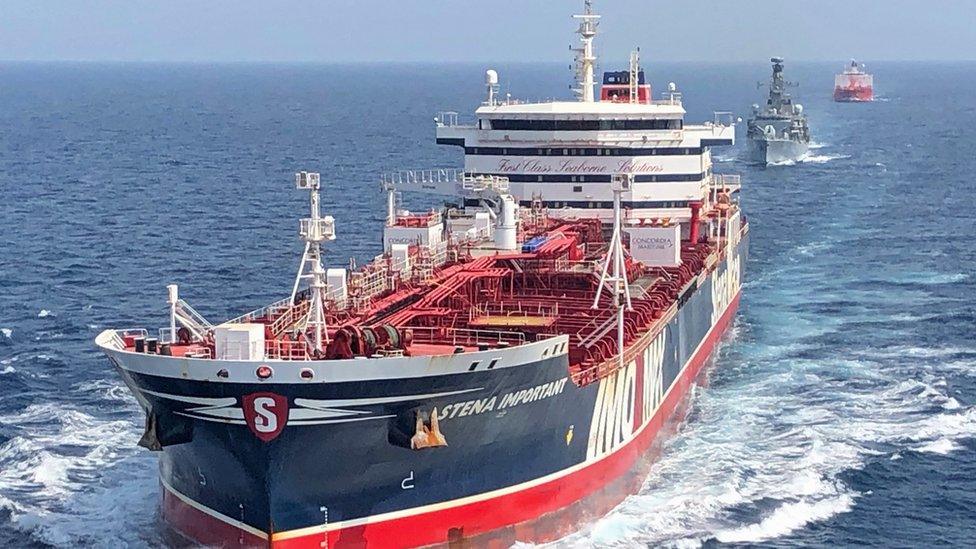Stena Impero: Seized British tanker leaves Iran's waters
- Published
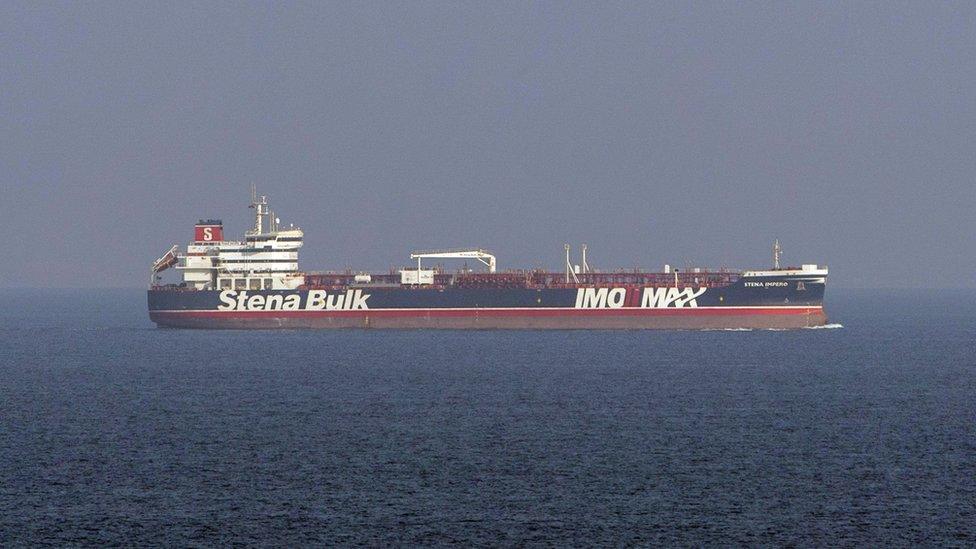
A UK Ministry of Defence photo shows the Stena Impero leaving the Iranian port of Bandar Abbas on Friday
A British-flagged oil tanker has left Iran two months after it was seized for allegedly breaking maritime rules.
Stena Bulk - Stena Impero's Swedish owner - said on Friday it was on the move from the Bandar Abbas port, where it had been anchored since 20 July.
The vessel was taken in the Strait of Hormuz two weeks after an Iranian tanker was held off Gibraltar with the help of the UK Royal Marines.
Tehran has strongly denied that it took the ship as an act of retaliation.
Erik Hanell, CEO of Stena Bulk, said the Stena Impero would head to Dubai, where the crew would be debriefed and receive medical checks.
"Full support will be offered to the crew and families in the coming weeks to assist with their recovery," he said in a statement, external.
Footage released by Iran's Revolutionary Guard-affiliated Fars news agency appears to show the Stena Impero being seized
On 4 July, UK forces seized the Iranian tanker Adrian Darya-1 - previously called Grace One - on suspicion of breaking EU sanctions on Syria.
After its release, the US blacklisted the vessel, pledging to impose sanctions on any buyer of the 2.1 million barrels of Iranian crude oil on board.
Iran announced in September that the ship had sold its cargo, prompting UK Foreign Secretary Dominic Raab to summon Tehran's ambassador to the Foreign Office.
Why was the tanker seized?
The Stena Impero was passing through international waters in the Strait of Hormuz, a narrow waterway that connects the Gulf and the Indian Ocean, on 19 July when it was detained by Iran's Islamic Revolution Guard Corps.
Iran accused the vessel of colliding with a fishing boat and failing to respond to calls, but the ship's owners said there was no evidence.
The UK said it deployed a Royal Navy frigate to come to the tanker's aid and warned Iranian authorities that their actions were illegal, but the frigate was unable to reach the scene in time.


The Stena Impero was then transported to the port of Bandar Abbas, where it has remained anchored since.
Seven "non-essential" members of its crew were freed by Iran on humanitarian grounds earlier this month. Sixteen crew members - 13 Indians, two Russians and one Filipino - are thought to be still on board.
The tanker reappeared on online shipping tracking websites on Friday - days after a detention order was lifted.
A statement from Iran's Ports and Maritime Organisation said the ship had been released "despite there being an open court case" against it.
The release comes amid high tensions in the region. There have been a series of confrontations over tankers in the Gulf, as well as a recent attack on Saudi oil facilities - which both the US and Saudi Arabia have blamed on Tehran.
Tensions between the US and Iran have escalated this year, following President Donald Trump's abandonment of a deal aimed at limiting Iran's nuclear activities.


The release of the Stena Impero removes one item from the agenda, but Britain and Iran are still at loggerheads over the case of Nazanin Zaghari Ratcliffe - a British woman imprisoned by Tehran on what many believe are trumped-up charges. And then there is the small matter of the outstanding money that the UK owes Iran for a tank order that was never honoured.
More broadly, over recent days there has been a cacophony of diplomatic signals, many of them contradictory.
The Europeans - led by the French - have sought to offer Iran a credit line to reduce the sanctions pressure if they will just honour the terms of the nuclear deal in full. But equally they are now saying that Tehran cannot carry on progressively breaching the agreement's terms without attracting further sanctions.
The attack on Saudi Arabia's oil installations further boosted tensions but it paradoxically illustrated that while Iran has options to escalate too, the Saudis and the US are very reluctant to respond in kind.

- Published21 July 2019
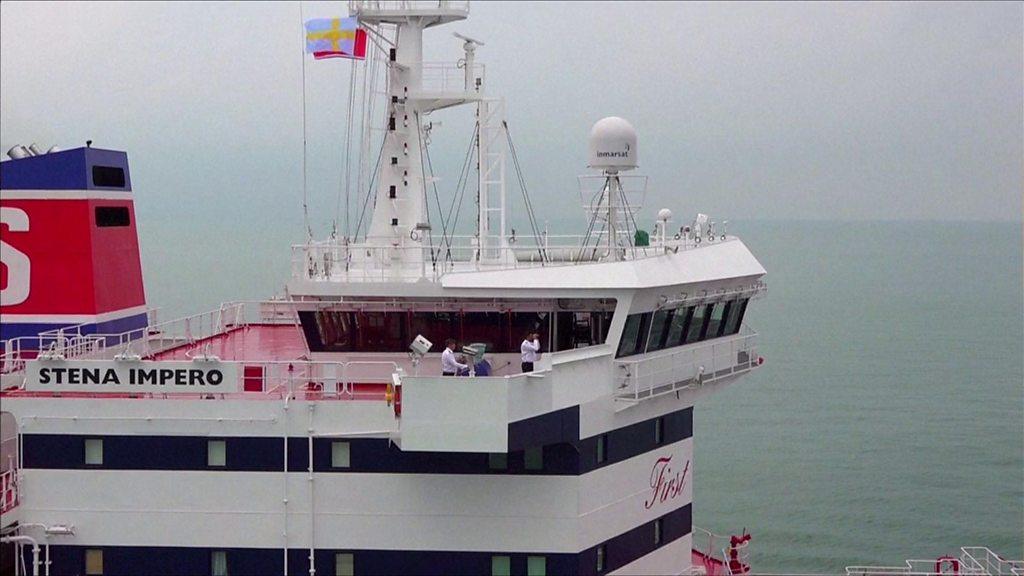
- Published4 September 2019
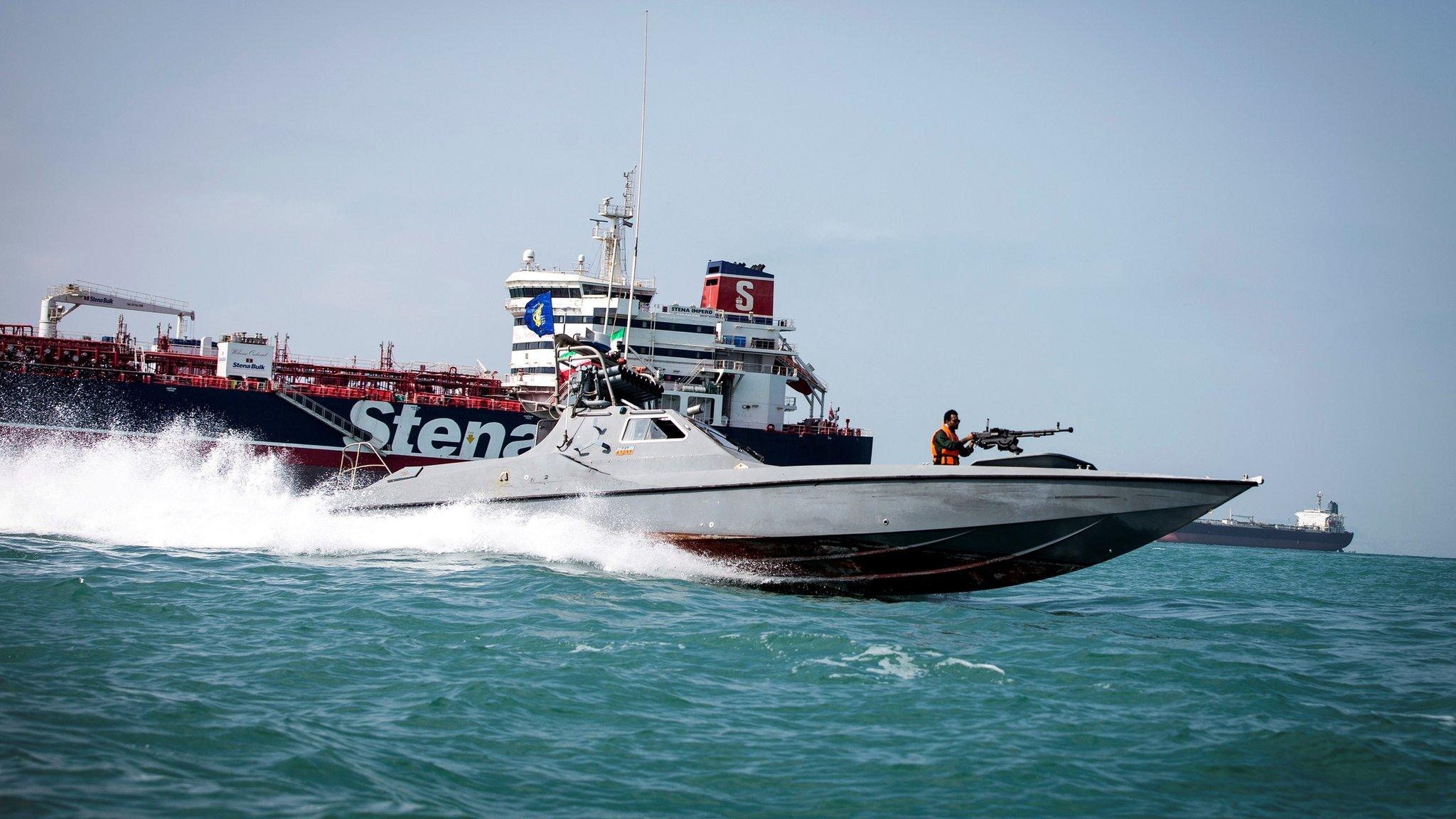
- Published31 August 2019
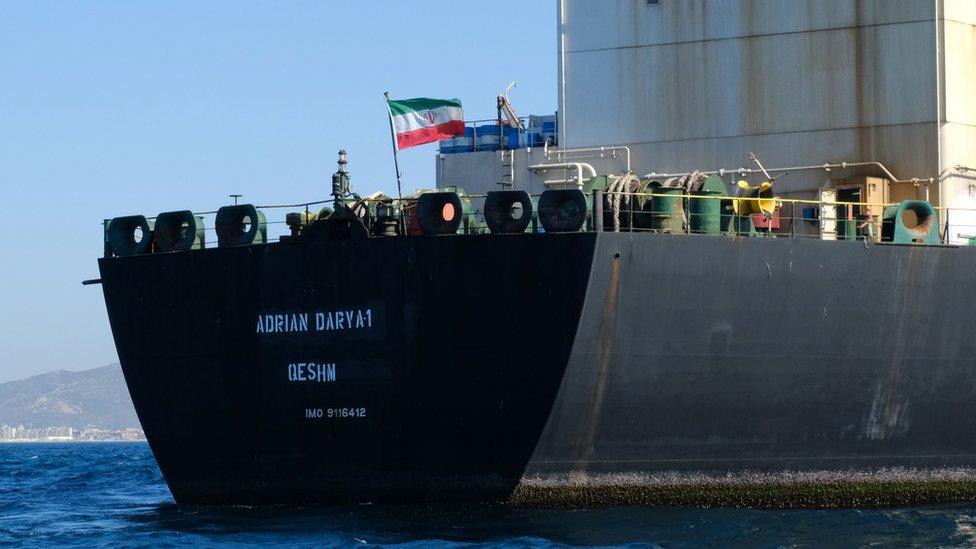
- Published5 August 2019
